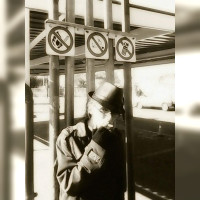Fiction, by nature, is all about making things up. But even fiction has to abide by some facts. Whenever you use an existing environment, things like lingo and location have to make sense to the reader, and the author is expected to get it right. Think about it: if you write about South Africa, a reader from SA would know that traffic lights are commonly called ‘robots’, and that ‘football’ isn’t always ‘soccer’.
Here’s why fiction needs fact—and how to keep it on target.
1. Write What You Know; Research What You Don’t
“Write what you know” is common advice. But what about the things you don’t know?
Your character might need to fire a 9mm Glock, whereas you’ve never touched a firearm. Your heroine might be forced to stab her attacker in the throat, which I sincerely hope you have no experience doing. One of your characters might be a forensic anthropologist, and you’ve never seen the inside of a lab.
Here’s what to do:
- First-hand experience, where practical (and, for the love of God, legal) is sometimes still best. I’ve been to several shooting ranges to get practical firearm experience for fiction writing.
- Interviews are a great resource. If you can’t do it yourself, ask someone who has. For insiders’ info, fact-checking, “how do you really do that?” queries and more, this can be your best bet. Where possible, shadowing has perks, too.
- For landmarks and locations, first consider if you can go there yourself. If not, use the great unending resource of the internet: make use of maps, Google Earth (especially street view!) and online virtual tours.
- Confirm real-life facts and check real-life dates. If you want to know what it’s like to be a nurse during night shift or you need to know what a specific medication would do to a patient with a weak heart, go and ask a nurse and a pharmacist.
- Fact-checking is essential. My rule is, if you aren’t sure, check it—if you have to check later, make a note in the side-line. Don’t assume you’ll do it later, and don’t leave it up to your editor.
2. Keeping Your Notes
Make notes as you write. You’ll need it eventually!
Mistakes often sneak in with the small details – a shirt suddenly changes color, a pack of matches is empty in one chapter and full in the next. Include a list of these things in your notes: Changes in setting, scene or continuity – so you can go back and check. Organize this by chapter and/or scene if you want to keep track of things.
Also keep a list of details pertaining to your characters: Their names, ages, eye color, habits and background. It’s almost like being a psychological profiler with a unique inside view into who you’re profiling: Use it!
Other things you might find it useful to take note of include:
- Locations (maps are often a great help)
- Real-life facts, dates and article clippings
- In-universe facts, dates, history, and rules
- The story’s timeline
- A synopsis of your story: This helps you see it at a glance.
Series’ like Jean M. Auel’s “Earth’s Children” or J.K. Rowling’s Harry Potter makes you see the importance of notes. Imagine getting up to writing book one and realizing you got something wrong in book one that matters in book seven? See some of J.K. Rowling’s (very detailed) notes here.
3. Making Stuff Up
There are times fiction has to think about it. People can’t fly, sparks don’t shoot from the ends of wands – and pizza-delivery guys are just there to deliver pizza, not carry out assassinations or…you get the idea.
When you’re bending the truth for your work, make sure you remember where and how. Again, you might have to refer back to your lists. That’s precisely what they’re for.
4. Mistakes to Watch Out For
I’ve written and edited a lot of fiction in my time so far. Here’s a list of common errors to keep an eye out for:
- Continuity: Things move or change color between scenes or chapters.
- Location: Descriptions and maps don’t match the real-life location.
- Names: Characters change names between scenes or chapters.
- Dates and ages: Always double check timelines, ages and dates!
- Language: Get languages you don’t speak double-checked by a native speaker.
- Local slang: For the best reference, study up or ask a local about their lingo.
- Facts: Do your research extensively. Verify real-life facts.
- Gritty details: Especially for those writing murder mysteries or working in details specific to a career, you want to get the gritty details right. Again, interview and research: Ask those who have, read about those who have experienced it, take a course on it. Do what you need to in order to get to know the gritty detail and get it right.
- In-Universe Facts: If something is specific to your universe, be consistent about it.
- Attributions: Attributing a quote? Make sure it’s right.
5. Notable Blunders
Everyone makes mistakes. Just to prove it, have a look at some of these:
- Harry Potter and the Philosopher’s Stone. The 31st of October, 1981 was actually a Saturday. In Chapter five, Harry buys One Thousand Magical Herbs and Fungi, which later becomes One Hundred Magical Herbs and Fungi.
- In the Da Vinci Code, it’s mentioned that a tarot deck has 22 cards – it has 78, though 22 are part of the Major Arcana.
- Also in the Da Vinci Code, Leigh Teabing refers to football as “soccer” – rare for an Englishman!
- In Desperation, the album Eat ‘Em and Smile is attributed to Van Halen, while it was a solo record by David Lee Roth.
How have you handled dealing with facts in your fiction? Have you ever read something and thought “hey, that’s not right!”? Let us know in the comments!




